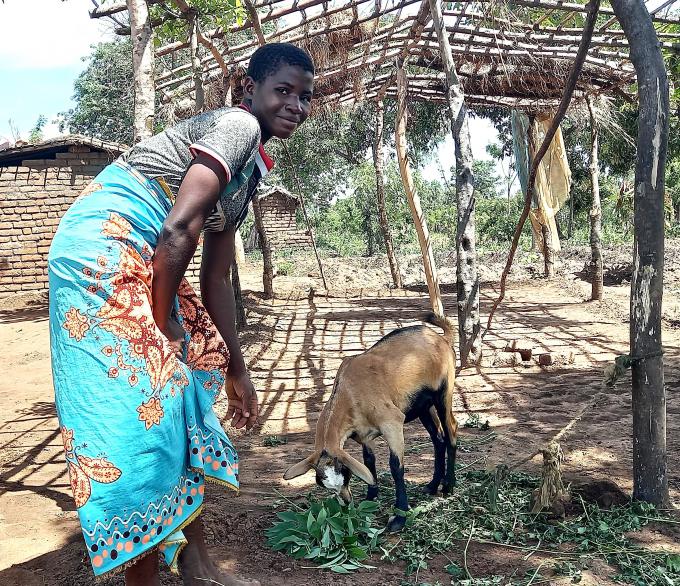From Despair to Hope: How Save the Children is empowering Farmers to Overcame Climate Challenges

In the village of Moleni Harry in Zomba District, Malawi, Effeta Kasongo, a resilient mother and farmer, faces daily challenges. For years, her family, like many others in the region, relied on maize farming as their main food source. However, recent years have brought unpredictable weather, from droughts to cyclones, which have severely impacted her crops and resulted in ongoing food shortages.
As the 2023/2024 rainy season approached, Effeta was met with unsettling news. In November 2023, the Department of Climate Change and Meteorological Services issued a drought warning for the upcoming season. The foreboding announcement spread anxiety across the village, especially for Effeta, who knew too well the disastrous consequences a drought could have on her maize crops.
In this time of uncertainty, a beacon of hope emerged through the Resilience and Economic Development (RED) Project, an initiative supported by Save the Children. This project aims to strengthen community resilience against climate shocks while promoting sustainable economic development. As part of the anticipatory actions to counter the anticipated drought, the RED Project provided participants with drought-resistant sweet potato vines.
The drought forecast was shared with the community during a Participatory Scenario Planning meeting organized by the Village Disaster Management Committee (VDRMC), a gathering that Effeta attended with heavy concerns. The VDRMC, working closely with the Department of Climate Change Services, outlined strategies for mitigating the impacts of the impending drought. One of their key recommendations was the cultivation of drought-resistant crops, such as sweet potatoes. While this advice was valuable, Effeta faced the challenge of sourcing the necessary sweet potato vine seeds.
Effeta’s worries were soon alleviated when she was selected to receive sweet potato vines through the RED Project.
Reflecting on the moment, she said:
"I felt a wave of relief when I heard that Save the Children's RED project would provide us with sweet potato vines to cushion the drought's impact."
The project provided Effeta and her fellow villagers with five bundles of improved sweet potato vines, which she eagerly planted in her garden.
Over the next three months, Effeta nurtured her sweet potato crop with care and anticipation. Her efforts were soon rewarded with a bountiful harvest of three bags of sweet potato roots.
"As a homemaker, I could alternate between sweet potatoes and maize flour (Nsima) for our daily meals, which helped us conserve the little maize we had harvested," Effeta shared, her voice filled with pride and relief.
In previous years, droughts had wreaked havoc on Effeta’s maize fields, leading to severe food shortages and pushing her family to the brink of hunger. But this year was different. Thanks to the sweet potatoes, her family had a vital food source that sustained them for a month during the critical period of food scarcity. Moreover, Effeta sold one bag of sweet potatoes for 20,000 kwachas, which she used to buy 30 kilograms of maize, further supplementing her family’s food supply.
A Future Full of Hope
Looking to the future, Effeta is filled with hope despite the ongoing challenges of climate change. She has already replanted the sweet potato vines in her garden, preparing for irrigated winter cropping. This proactive step ensures that her family will continue to have access to food, even in the face of potential droughts.
 Malawi
Malawi